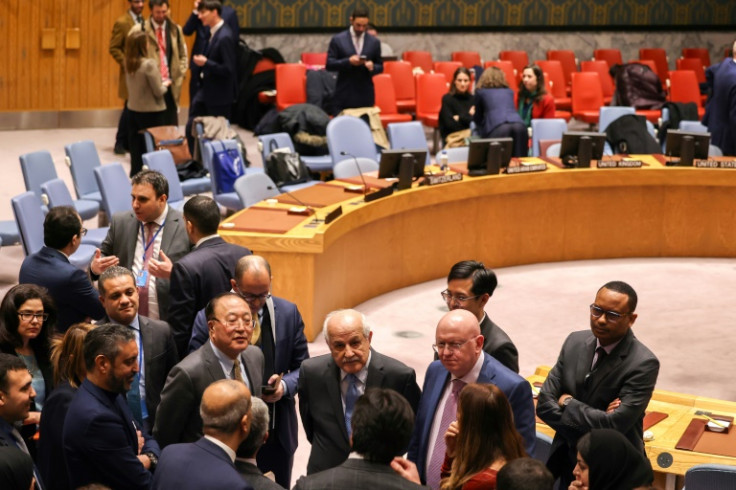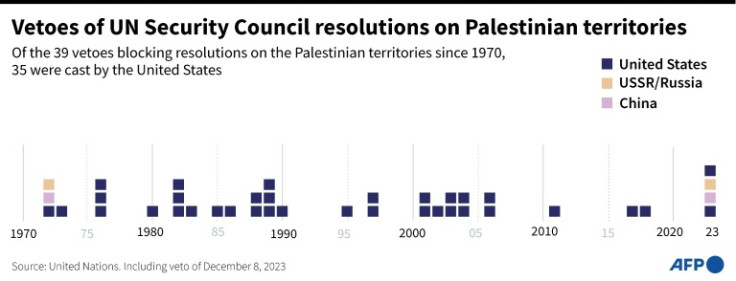
The United Nations Security Council was due to vote Wednesday on a much-delayed resolution calling for a pause to the Israel-Hamas war after members wrangled over wording while aid efforts in the Gaza Strip neared collapse.
The humanitarian situation in Gaza was rapidly deteriorating, with a senior UN official saying Israel's steps to allow in aid were "far short" of mounting need.
Members of the council had grappled for days to find common ground on the resolution, a vote on which was pushed back several times throughout Tuesday, after being postponed Monday.
An official scheduling document said the 15-member body would finally vote on Wednesday.
Israel, backed by its ally Washington, a veto-wielding permanent Security Council member, has opposed the use of the term "ceasefire."
Richard Gowan, an analyst at the International Crisis Group, said that "everyone is basically stuck waiting to see what the US will decide to do."
"It looks like even US diplomats do not know how this saga will end," he added, after several United States diplomats gave non-committal answers when asked what would happen and why the vote had been delayed through Tuesday.
US National Security Council spokesman John Kirby said he did not want to "get ahead of a resolution that hasn't been voted on yet."
This week's back and forth comes after an impasse earlier this month, when the United States, despite unprecedented pressure from UN Secretary-General Antonio Guterres, blocked the adoption of a Security Council resolution on the war.
It had called for an "immediate humanitarian ceasefire" in the Gaza Strip, where Israel continues its deadly strikes in retaliation for Hamas's unprecedented October 7 attack.
Last week, the General Assembly adopted the same nonbinding resolution by 153 votes to 10, with 23 abstentions, out of 193 member states.
Bolstered by that overwhelming support, Arab countries announced the new attempt at the Security Council.
A draft text prepared by the UAE, obtained by AFP on Sunday, called for "an urgent and lasting cessation of hostilities to allow unimpeded access of humanitarian aid to the Gaza Strip."
The last version seen by AFP was, however, a modified text that seemingly sought to salvage a compromise.
It was less direct, calling for "the urgent suspension of hostilities to allow safe and unhindered humanitarian access, and for urgent steps towards a sustainable cessation of hostilities."
United Nations official Tor Wennesland said Tuesday that Israel's "limited" steps to allow aid into Gaza "are positive, but fall far short of what is needed to address the human catastrophe on the ground."
After the attack on October 7, which Israeli authorities say left around 1,140 people dead, most of them civilians, Israel vowed to "annihilate" Hamas.
The Hamas-run health ministry in Gaza says Israel's military response has killed 19,667 people, mostly women and children.








